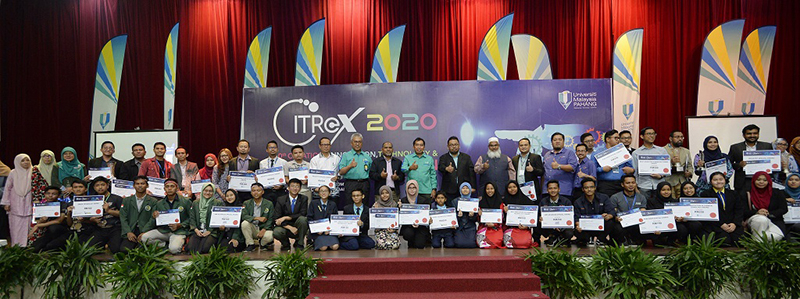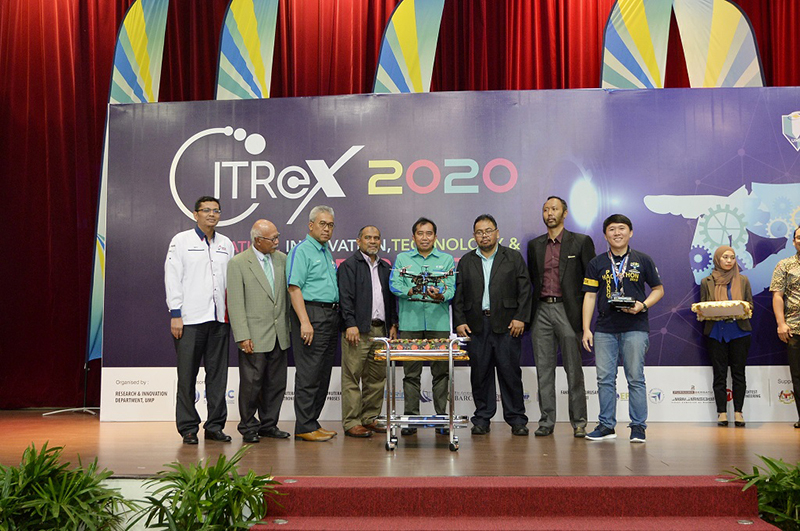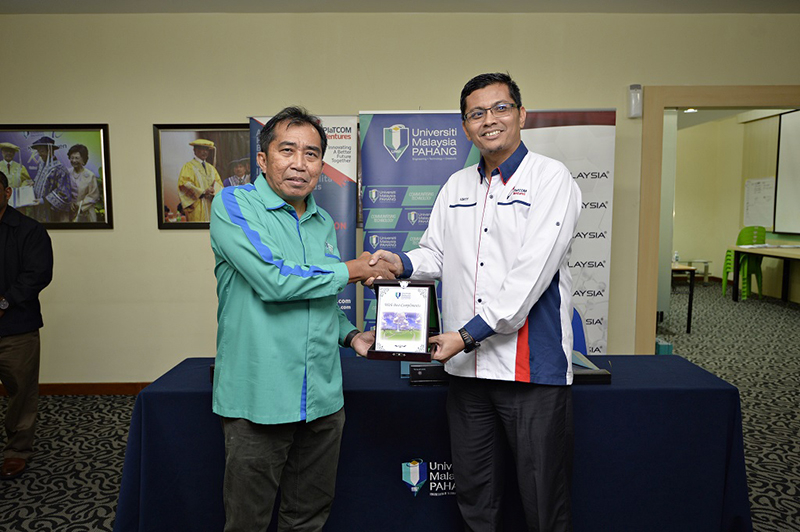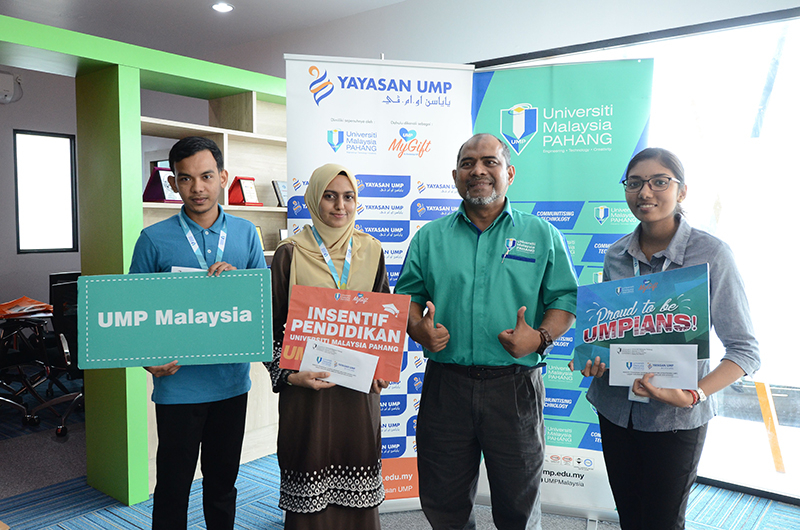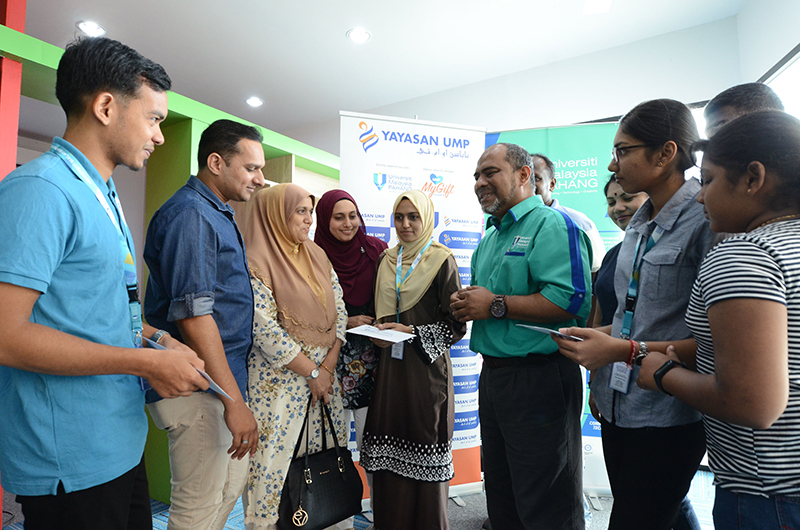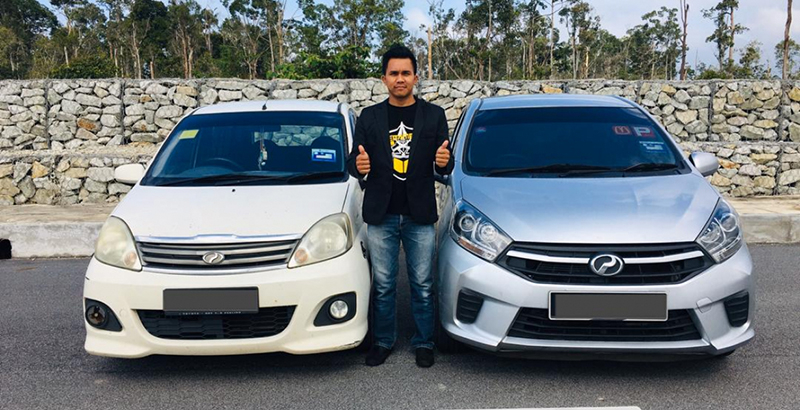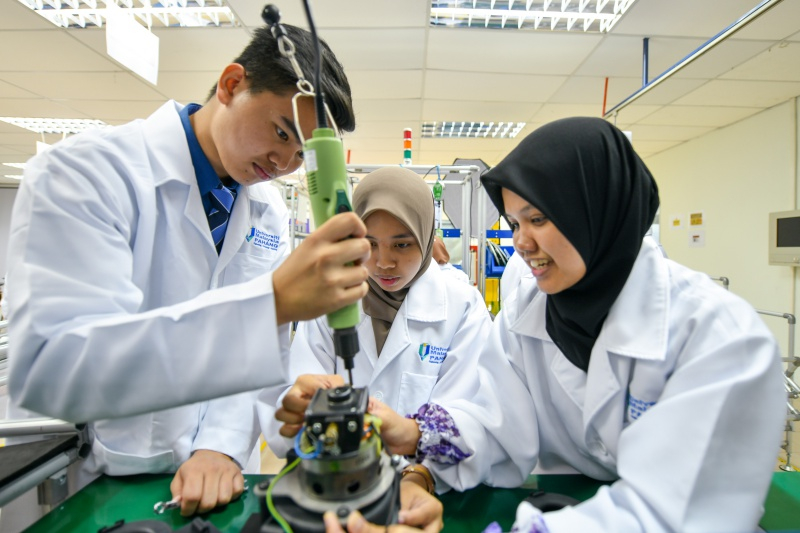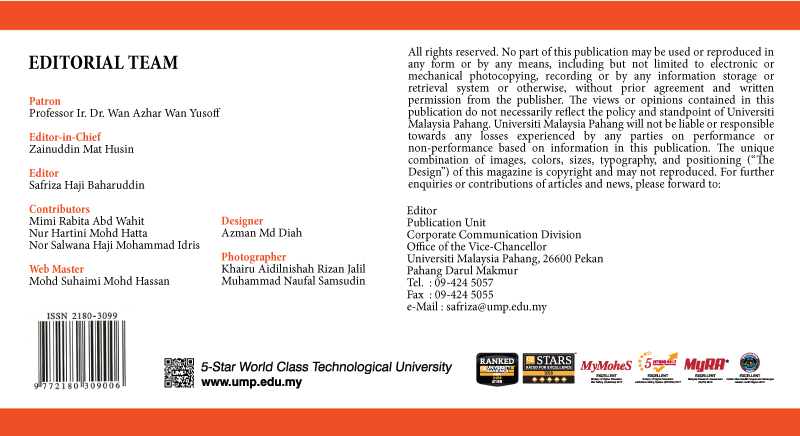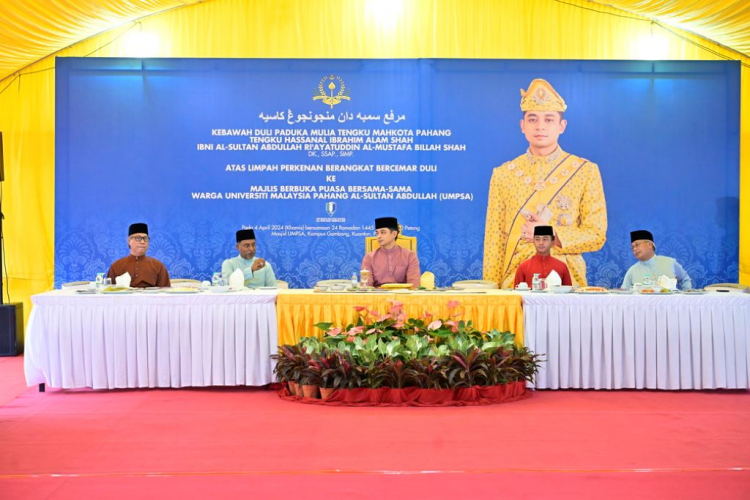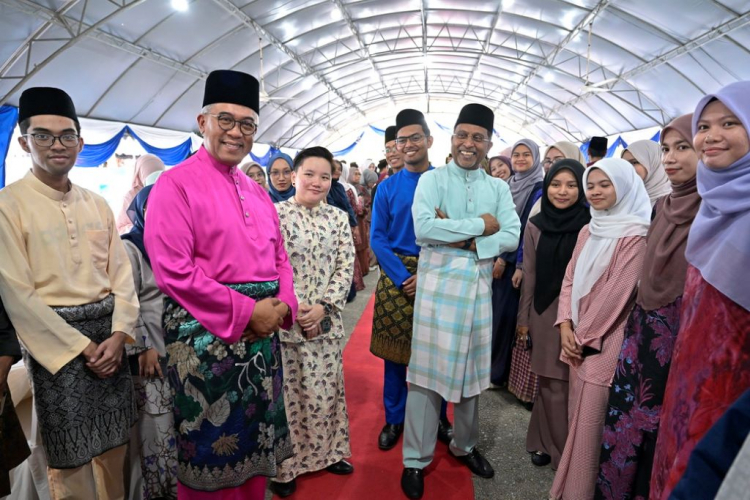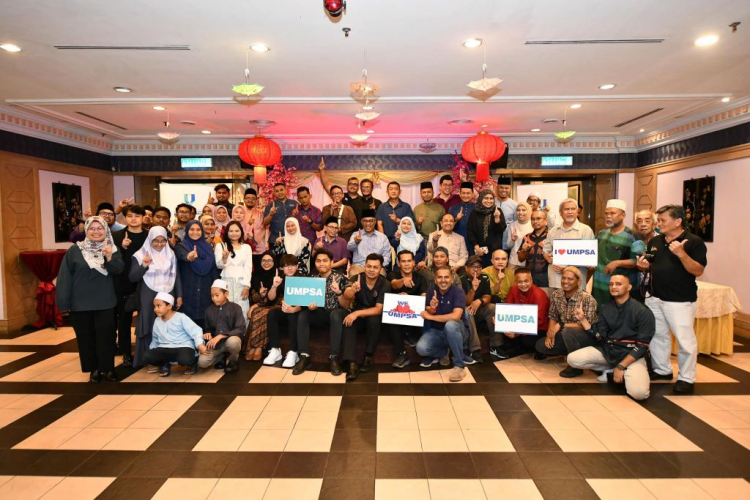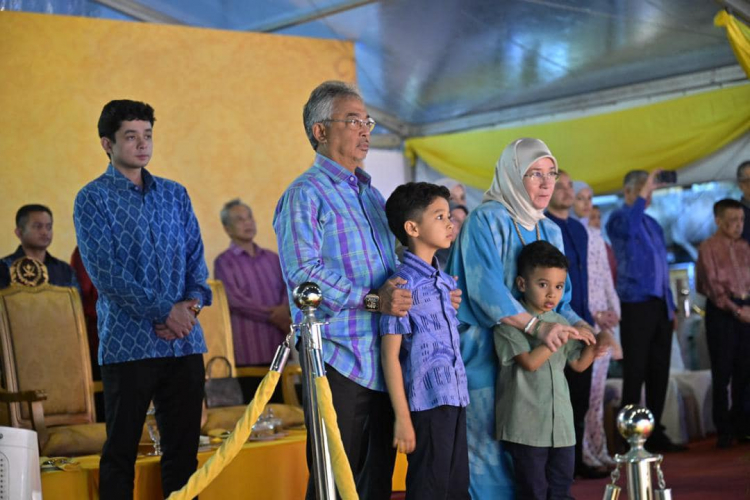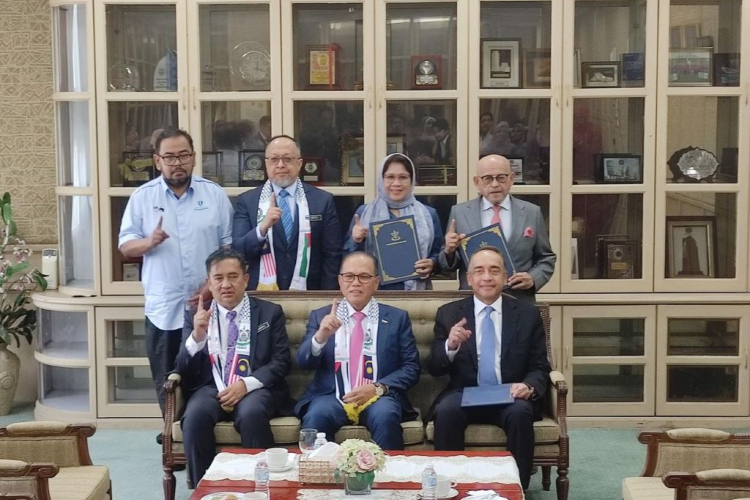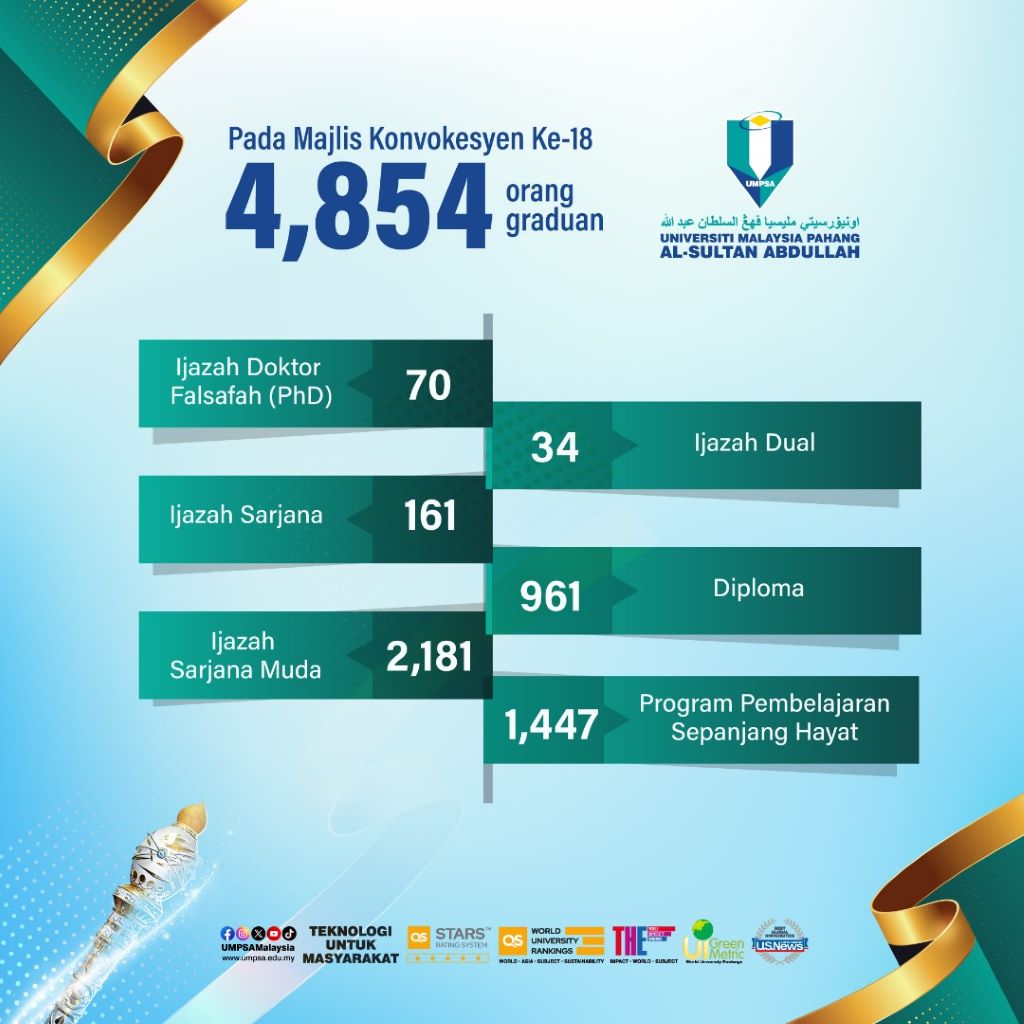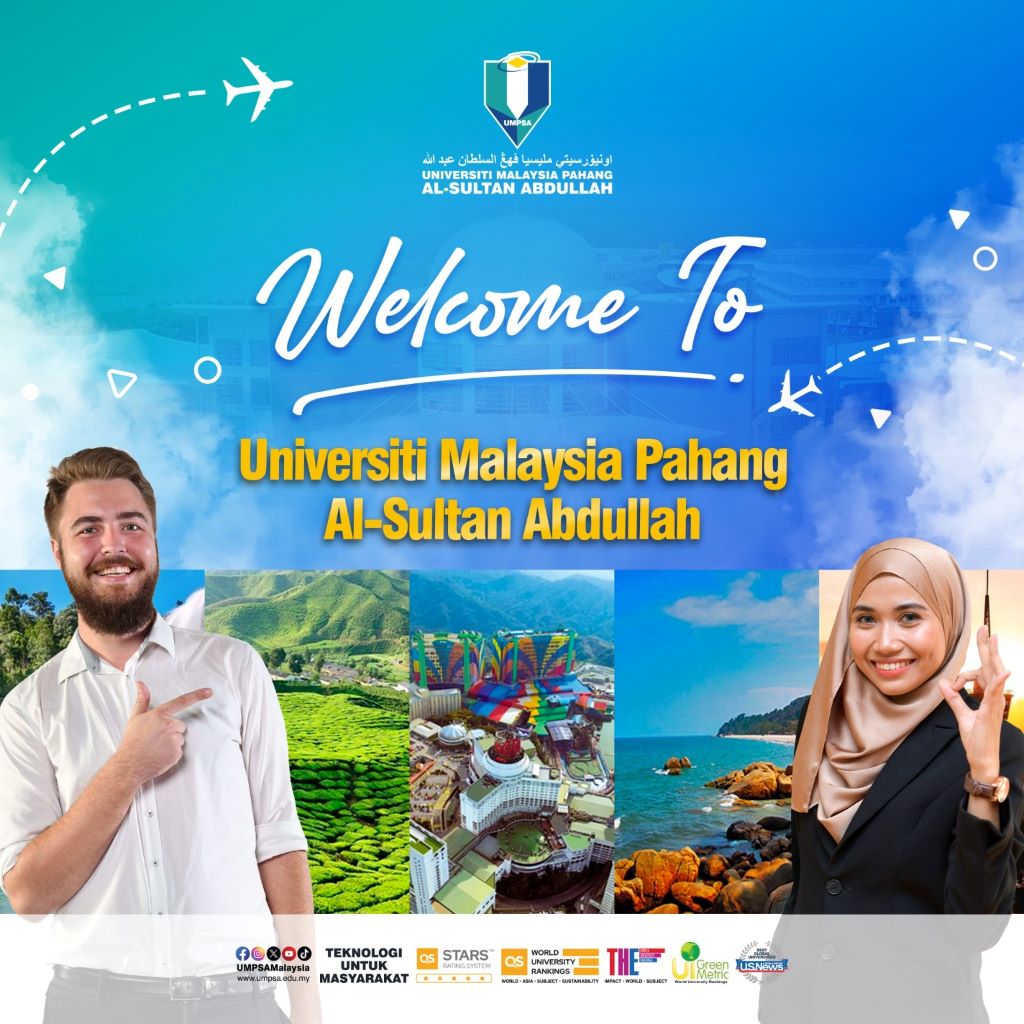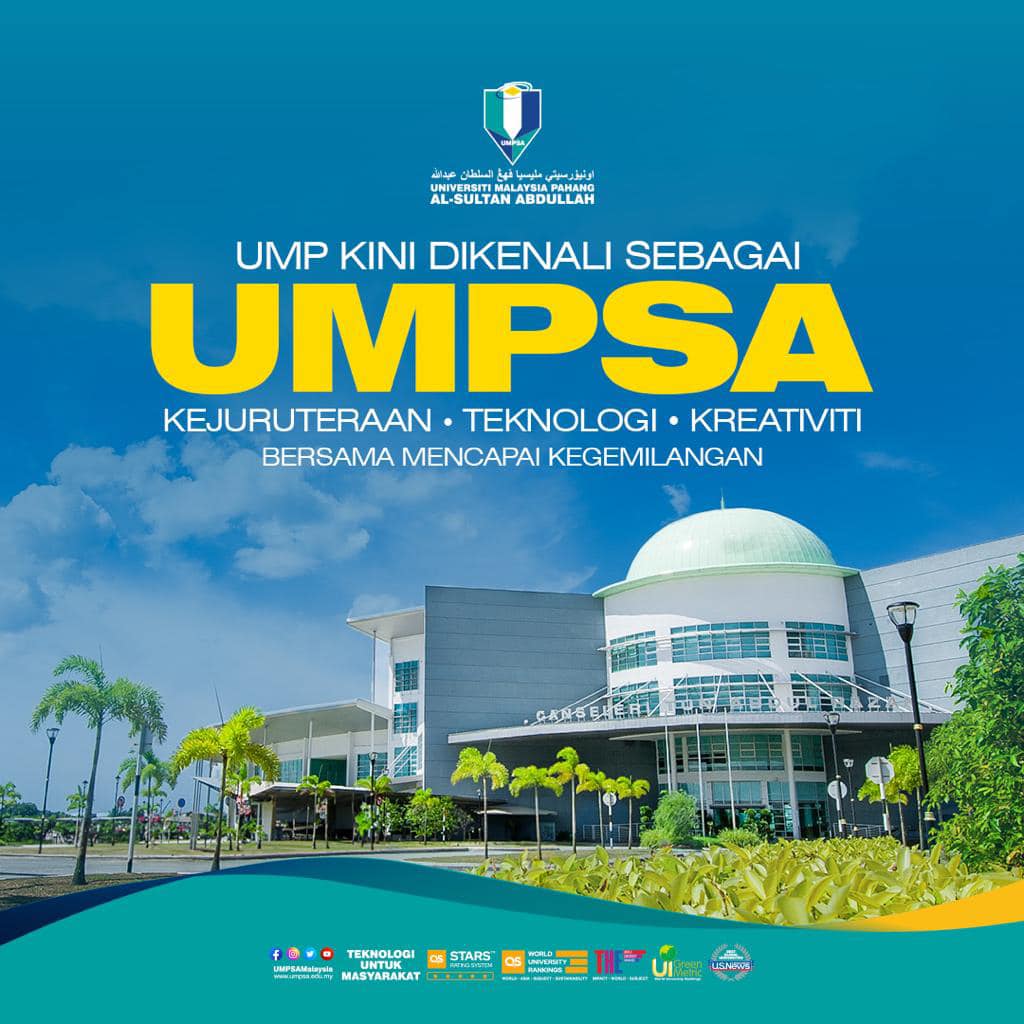 Research and Innovation CITREX 401 products flourish innovation culture
Translation by: DR. ROZAIMI ABU SAMAH, FACULTY OF CHEMICAL AND PROCESS ENGINEERING TECHNOLOGY The 10th edition of Creation, Innovation, Technology & Research Exposition (CITREx) 2020 saw Universiti Malaysia Pahang (UMP) as the platform for encouraging and nurturing the innovation culture among the researchers including academicians and students not only from UMP but also from the Malaysian Technological University Network (MTUN), Kolej Poly-Tech MARA, Advanced Technology Training Center (ADTEC) and other higher education institutions (HEI) across the country. The exposition was held on 12 and 13 February 2020, involving 401 entries that included participation from primary and secondary schools. This initiative supports the university’s aspiration in communitising technology through the encouragement of research among schoolchildren.
A total of 218 entries involving UMP staff, eight from MTUN, four from local public universities including Universiti Malaya (UM), Universiti Putra Malaysia (UPM), Universiti Teknologi MARA (UiTM) and Universiti Perguruan Sultan Idris (UPSI), as well as Universitas Sumatera Utara (USU). The remaining came from UMP students (129 entries) and secondary and primary schools (40 entries). Also held was the exchange of Memorandum of Understanding (MoU) between UMP and NanoMalaysia Berhad (NanoMalaysia) and collaboration with PlaTCOM Ventures Sdn. Bhd. (PlaTCOM) relating to the promotion of technology commercialisation activities at national and international levels, centralised in the East Coast of Peninsular Malaysia.
The event witnessed the Deputy Vice-Chancellor (Research & Innovation), Professor Dr. Kamal Zuhairi Zamli exchanging document with the Chief Executive Officer (CEO) of NanoMalaysia, Dr. Rezal Khairi Ahmad, while PlaTCOM was represented by Lofty Muhammad Abdul Karim, the CEO of the company. Also present were the Chairman of the UMP Board of Directors, Dato’ Sri Ibrahim Ahmad, Deputy Vice-Chancellor, Professor Dato’ Dr. Yuserrie Zainuddin, and Deputy Vice-Chancellor (Academic & International), Professor Ts. Dr. Rosli Hainin. MyGift 16 new students received incentives under UMP Education Foundation
A total of 16 new Universiti Malaysia Pahang (UMP) students who recently registered for the 2019/2020 Semester Two Academic Session received incentives under UMP Education Incentive Assistance Scheme. Each received a sum of RM1,000 that would help lessen their financial burden. They were selected from 438 students who registered for the second intake that took place at both of the university campuses in Gambang and Pekan on February 7, 2020. The incentives were presented to students at both campuses with Deputy Vice-Chancellor (Academic and International), Professor Ts. Dr. Mohd Rosli Hainin handed out the incentives at the Student Activity Centre in UMP Pekan Campus while Student Affairs and Alumni Department’s Student Service Dean, Associate Professor Dr. Mansor Sulaiman gave out the incentives at the Second College Residential Office in UMP Gambang Campus. According to Professor Ts. Dr. Mohd Rosli, the scheme was an effort taken to help reduce the financial burden of students coming from the less privileged family background (B40 group). “To those who receive the incentives, they are also eligible to receive RM500 if they obtain good results, getting a Grade Point Average of 3.50 and above every semester.
“It is a new incentive introduced this year aimed at motivating students to maintain good results until they completed their studies. “UMP Foundation is also on an aggressive campaign in seeking funds to ensure that more students can benefit from this incentive. “To date, funds are derived from donations by corporate bodies, strategic partners such as Bank Rakyat, alumni and the public,” he said. One of the recipients, Muhammad Firdaus Nor Hamda, 22, who is from Jerteh, Terengganu, said he was heartened by the contribution given as it would help to cover the cost of registration and some other expenses. He also said he had not expected to be selected. The third child of eight siblings, Muhammad Firdaus said he was grateful to be able to continue his study in Bachelor’s Degree (Hons.) in Manufacturing Engineering. He added that initially, he had second thoughts about continuing his study as his family’s livelihood only depended on his late father’s pension. “However, my mother advised me to continue with my studies, saying that education can shape our future. Insya-Allah, I will try my best to complete my studies and be successful and eventually, help my family,” he said. Campus Info Khairull, student-cum-rental car entrepreneur, provides cheaper transportation means to students in campus
By: SITI NURFARMY IBRAHIM, PUBLIC RELATIONS UNIT, OFFICE OF THE VICE-CHANCELLOR It started with his intent to facilitate students to move around in campus and going by with only a Perodua Viva borrowed from his family but now Khairull Nasruddin Mansor, 25, is a proud owner of a modest car rental business with five cars. He had some experience running the business following a working stint with a car rental operator prior to this. The Faculty of Chemical and Process Engineering Technology undergraduate said at first, it was tough as the car required a lot of maintenance works. With a loan and some savings that he made when working, Khairull, or fondly known as Kerol, now run the business using Axia, Viva, Kenari and Myvi car models. He said the cars were more suitable for students while the rental rate was not as high as those charged outside of the campus which was fixed on a daily basis. Khairull said he charged the students on an hourly basis, starting from RM6 up to RM10, depending on the car model. The cars were also placed at strategic locations where students could easily pick the vehicles, he added. Khairull said he also provided delivery service to customers outside of the campus. He strongly believed that an undergraduate must be brave to try something new such as a business venture and at the same time, prepare a smart plan that involved a good balance for studying and running a business. “This will challenge one to break out from one’s comfort zone. One must feel the pain and gain in business ventures and the experience is surely something that is really valuable,” he said. He said there were many challenges faced due to stiff competition from other car rental operators but that did not deter him from continuing to pursue the business. One of the challenges was not having customers during the semester holidays but Khairull managed to work out a solution by renting the cars to students from nearby learning institutes. Khairull also said he emphasised on safety and would ensure that the cars were in good condition and safe for driving. He also acknowledged the support from the university in providing the opportunity for students to go into business and highly appreciate it. On his future plans, Khairull said he hoped to set up a branch in his hometown and to find business partners to expand his business in Kuala Lumpur as well as to open a car wash centre and workshop that offered lower maintenance cost. Khairull, who came from a middle-income family and the only son among his siblings, had also set out to financially help his family even though he was still a student at Universiti Malaysia Pahang (UMP). The money that he earned was used for expenses while in the university and that he even send some of the money to his family. Apart from the car rental business, Khairull also dabbled in other businesses like selling perfume and do ‘surprise delivery’ service that he managed with several friends. Features Our nation needs more Professional Engineers
By: ASSOCIATE PROFESSOR. IR. DR. WAN SHARUZI WAN HARUN.
The journey of an engineer begins from obtaining a scroll of an engineering degree till becoming a professional practitioner in their engineering field or better known as Professional Engineer (PE). Becoming a Professional Engineer can be considered as the highest achievement for all engineering graduates in any area. The recognition as a Professional Engineer will provide a sense of triumph to anyone passionate about their engineering profession. Professional Engineer will only deliver the tasks based on their most exceptional engineering knowledge, accurate problem analysis, optimum solution to the problem, comprehensive investigation and analysis, utilisation of best available tools, environmental and sustainability safeguard, a high priority of public safety, and sound judgement in project management through ethical practices. In Malaysia, there are various sectors for our engineers to serve including consultation, research & development, construction, building services, maintenance, manufacturing, plantation, aviation, maritime, sales, and oil & gas industry, as well as institutions of higher learning like universities and colleges as a lecturer or a teaching engineer. For our beloved country to become a developed nation, the engineer to population ratio must be 1:100. For Malaysia, with a population of 32 million, the number of engineers should be 300,000. Surprisingly, based on the Education Ministry’s statistics from 1997 to 2020, the average number of engineers produced per year by the local institutions of higher learning, excluding graduates from international universities is about 16,000. The cumulative total of all engineers produced from 1997 to 2020 is estimated to be about 400,000. The number of engineers may be currently surplus for Malaysia. Unfortunately, the reality is that only 35 percent of the graduate engineers (GE) registered with the Board of Engineers Malaysia (BEM). BEM is owned by the Malaysian government to administer the registration of PE. Although according to Malaysia’s law through the Registration of Engineers Act 1967 (Revised 2015), all practising engineers must be registered with the BEM as GE to work as an engineer legally. According to the statistic published by BEM in February 2020 (Figure 1), only 10 percent out of 142,000 registered Graduate Engineer (GE) successfully obtained the certification as Professional Engineer which is less than 4 percent of all engineers in Malaysia. At least five most common engineering fields that run the country today, which are mechanical, chemical, electrical, electronic, and civil engineering. As shown in Figure 2, civil engineering shows the highest number of registered Graduate Engineer followed by mechanical, electrical, electronic, and chemical engineering. More than 50 percent of the total registered Graduate Engineer have been upgraded into Professional Engineer for at least two engineering disciplines which are civil and electrical engineering. For mechanical engineering, the number of Graduate Engineer converted into Professional Engineer is slightly less at about 40 percent. The least amount of converted Graduate Engineer into Professional Engineer status is demonstrated by chemical and electronic engineering. Several reasons have been identified to be the cause of this mismatch:
While the number of engineering graduates has been very encouraging in terms of quantity, Malaysia is still facing a shortage of engineers in terms of employability and retention of talents within the engineering sector and companies. Since Professional Engineers are crucial in bringing Malaysia to achieve a developed nation’s status, all engineering graduates should register as Graduate Engineer before obtaining the Professional Engineer qualification.
Figure 1: Statistic data for GE and PE in Malaysia as of February 2020
Figure 2: Percentage of GE and PE according to engineering disciplines in Malaysia as of February 2020 BEM has facilitated the process of obtaining the Professional Engineer status by offering three alternatives routes:
Professional Assessment Examination (PAE) and Professional Qualification Equivalent (PQE) are the evaluations conducted by the Board of Engineers Malaysia (BEM). Whereas, Professional Interview (PI) is managed by the Institution of Engineers Malaysia (IEM). All of these routes have the same purpose of ensuring the PE candidates meet all competencies required for a Professional Engineer. The writer is a Senior Lecturer at the Faculty of Mechanical & Automotive Engineering Technology, Universiti Malaysia Pahang. |
Harian Metro
Hidup tiada jalan mudah
New Straits Times
Pahang Crown Prince: Spend wisely, celebrate Aidilfitri moderately


